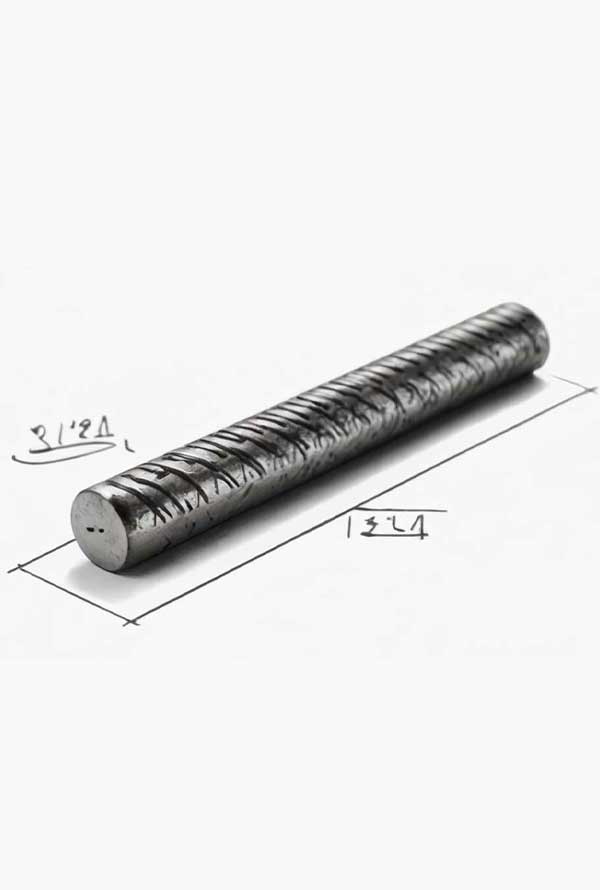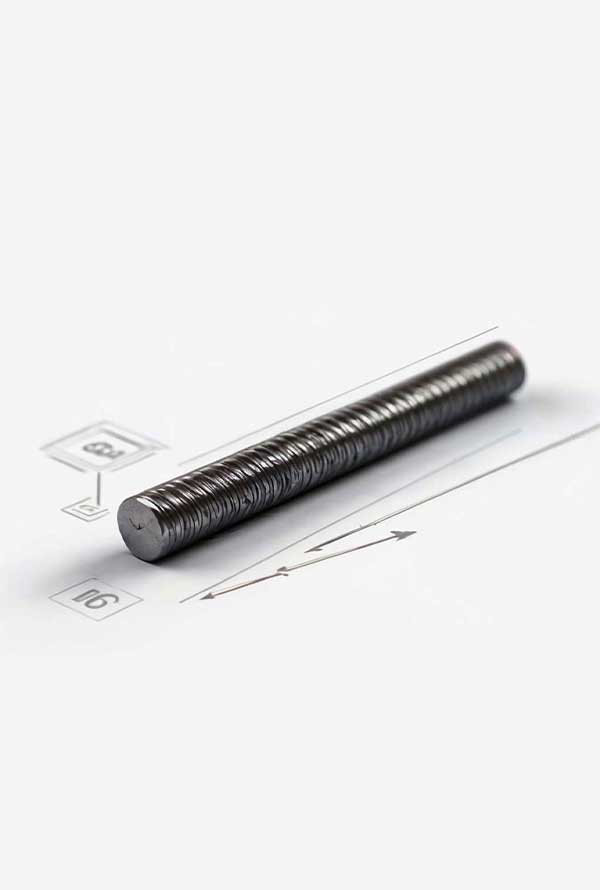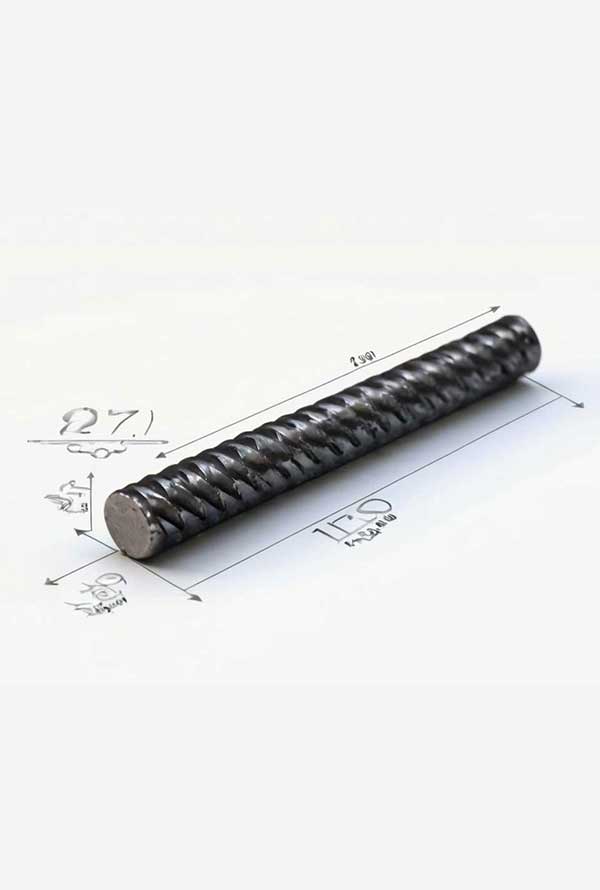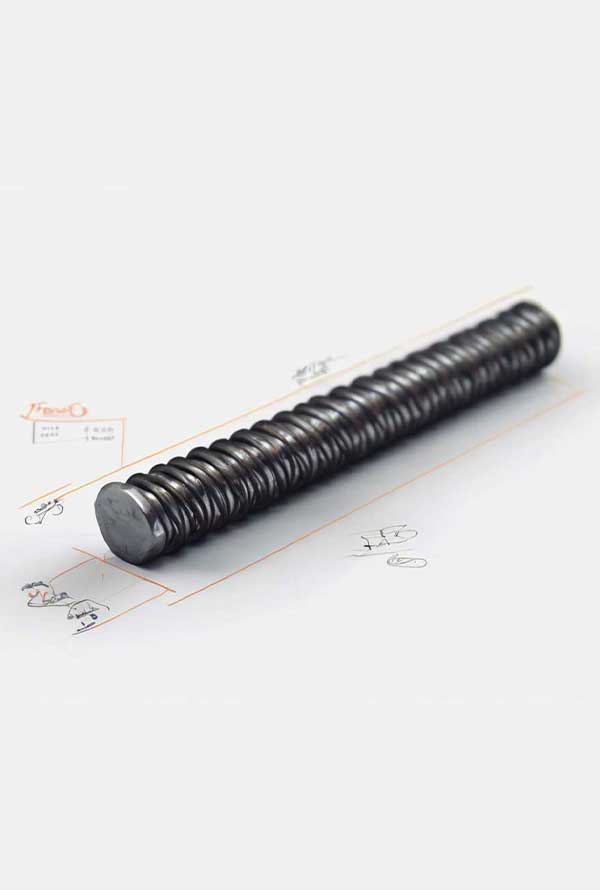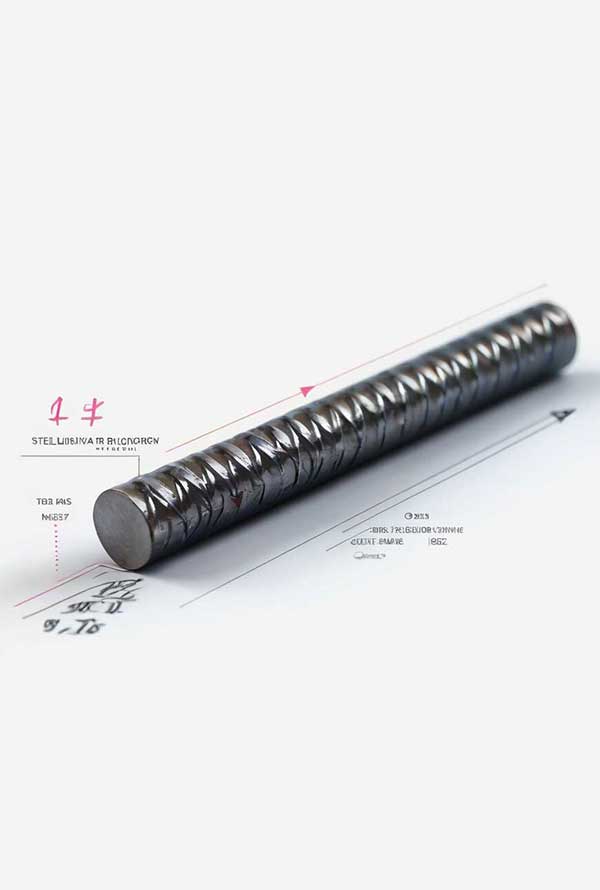Size 25 rebar is essential for both industrial and residential construction. Its unique properties provide excellent tensile and compressive strength, making it vital for reinforcing concrete structures. At Sirjan Hadid Steel Factory, we offer top-quality rebar 25 at factory prices, ensuring you can confidently complete your projects while maximizing cost efficiency.
Factors Affecting the Price of Rebar 25
As one of the most widely used products in the construction industry, the price of rebar 25 is influenced by multiple and complex factors. Global market fluctuations, especially in steel and raw material markets, significantly impact rebar prices due to the close link between the steel industry and the global economy.
Additionally, changes in exchange rates directly affect production costs and, consequently, the final price of rebar, as the Iranian steel industry heavily relies on imported raw materials. Moreover, fluctuations in demand for rebar in the market, particularly during construction seasons, also influence its price. Besides, the quality of rebar and its production standards are other factors affecting its final cost.
Rebars produced with higher quality and in compliance with international standards usually have higher prices. Overall, the price of rebar is shaped by a complex interplay of domestic and international factors, each playing a role in the pricing trend of this product.
Features and Specifications of Size 25 Rebar
Rebar 25, as one of the commonly used steel products in the construction industry, plays an essential role in reinforcing concrete structures. Choosing this size of rebar depends on project needs, such as required load capacity and rebar density in various structural sections.
Production Methods and Standards
Rebar 25 is produced through two methods: electric furnace and traditional methods. In Iran’s market, this rebar is commonly manufactured in grades A3 (ribbed) and A4 (compound ribbed). Grade A3 is widely used in concrete structures due to its balanced resistance and ductility.
Technical Specifications of Rebar 25
| Feature | Value | Unit |
|---|---|---|
| Size | 25 | mm |
| Weight of 12-meter bar | 47 | kg |
| Diameter | 25 | mm |
| Yield Stress | 4000 | kg/m² |
| Tensile Strength | 6000 | kg/m² |
Properties and Applications of Rebar 25
Size 25 rebar, known for its mechanical properties and diverse applications, is a preferred choice in the construction industry. Its high tensile strength makes it ideal for handling tensile forces exerted on concrete structures.
Additionally, the use of rebar 25 in concrete structures, especially in earthquake-prone areas, is crucial for increasing the shear resistance of structures. This rebar also significantly strengthens building foundations and enhances concrete resistance to applied forces.
Other advantages include preventing concrete cracking around the rebar and increasing the structure’s durability and lifespan. In general, rebar 25 is one of the most frequently used steel products in construction due to its suitable mechanical properties and versatility.
Important Considerations When Using Rebar 25
The application of rebar 25 in the construction industry requires adherence to specific technical considerations. Direct welding of A3 ribbed rebars is not recommended due to the brittleness of the weld metal and reduced joint strength. If rebar connections are needed, mechanical methods such as overlap joints or friction welding are better suited, as they do not diminish the mechanical properties of the rebar.
Choosing the appropriate rebar grade based on structural type, environmental conditions, and load requirements is crucial. Each grade of rebar has unique mechanical properties and applications. Moreover, strict adherence to construction standards in reinforcement and concreting operations, including adequate concrete cover, proper spacing between rebars, and accurate bending of reinforcements, is essential to ensure the structure performs as intended.
Applications of Rebar 25 in Construction
Due to its desirable mechanical properties and diverse uses, this type of rebar is widely applied in various structural components.
- Foundations: Rebar 25 enhances resistance to compressive and tensile forces, preventing settlement and cracking in concrete foundations.
- Columns: This rebar increases the compressive and bending resistance of columns, enabling them to bear applied loads effectively.
- Concrete Beams: It is used in beams to resist bending and shear forces, preventing beam failure.
- Reinforced Concrete Walls: Rebar 25 reinforces walls and prevents cracking.
- Concrete Flooring: It improves the tensile strength of floors and prevents cracks caused by settlement or temperature changes.
Reasons for Widespread Use of Rebar 25
Rebar 25 has become one of the most widely used steel products in construction due to its unique features. Its high tensile and compressive strength make it ideal for reinforcing concrete structures and bearing loads.
Additionally, its flexibility allows for easy bending, making it suitable for use in complex structural geometries. The ribs on its surface provide excellent adhesion to concrete, creating a strong bond. Furthermore, its relatively affordable price compared to other steel products makes it an economical choice for builders.
Comprehensive Guide to Buying Rebar 25
Given the variety of products available in the market, selecting the most suitable type of rebar for construction projects requires careful attention to key points. This guide explores the most important factors affecting the purchase of rebar 25 and provides tips for choosing the right product.
- Important Considerations: Consult project engineers, verify quality certifications, and compare prices among suppliers to make an informed choice.
In the case of uniform ribs, the height and distance between the ribs remain consistent along the length of the rebar, ensuring consistent performance in concrete structures. In the spindle-shaped ribs, there is a gradual change in rib geometry, which can enhance the adhesion of the rebar to concrete in specific applications.
The choice between uniform and spindle-shaped ribs depends on factors such as the structural design, environmental conditions, and the specific engineering requirements of the project.
Technical and Quality Standards for Rebar 25
Rebar size 25 is produced under various international and national standards to ensure its mechanical properties and performance. The following are some of the main standards:
- BS 4449: British standard for carbon steel rebars used in reinforced concrete.
- ASTM A615: American standard defining specifications for deformed and plain carbon steel bars for concrete reinforcement.
- IS 1786: Indian standard for high-strength deformed steel bars used in reinforced concrete.
- DIN 488: German standard for reinforcing steel in construction.
Comparison of Rebar Grades
Each standard includes specific technical criteria such as yield strength, tensile strength, and elongation, which must be met for rebar size 25 to be compliant. When purchasing rebar, always ensure that the product complies with one of these recognized standards to guarantee its quality and suitability for your construction needs.
Conclusion
Rebar size 25 plays a crucial role in modern construction due to its excellent tensile strength, durability, and versatility. By understanding its properties, technical standards, and applications, you can make informed decisions when selecting this vital building material for your projects.
For further inquiries and expert advice, consulting with professionals and referring to reliable resources is always recommended.
